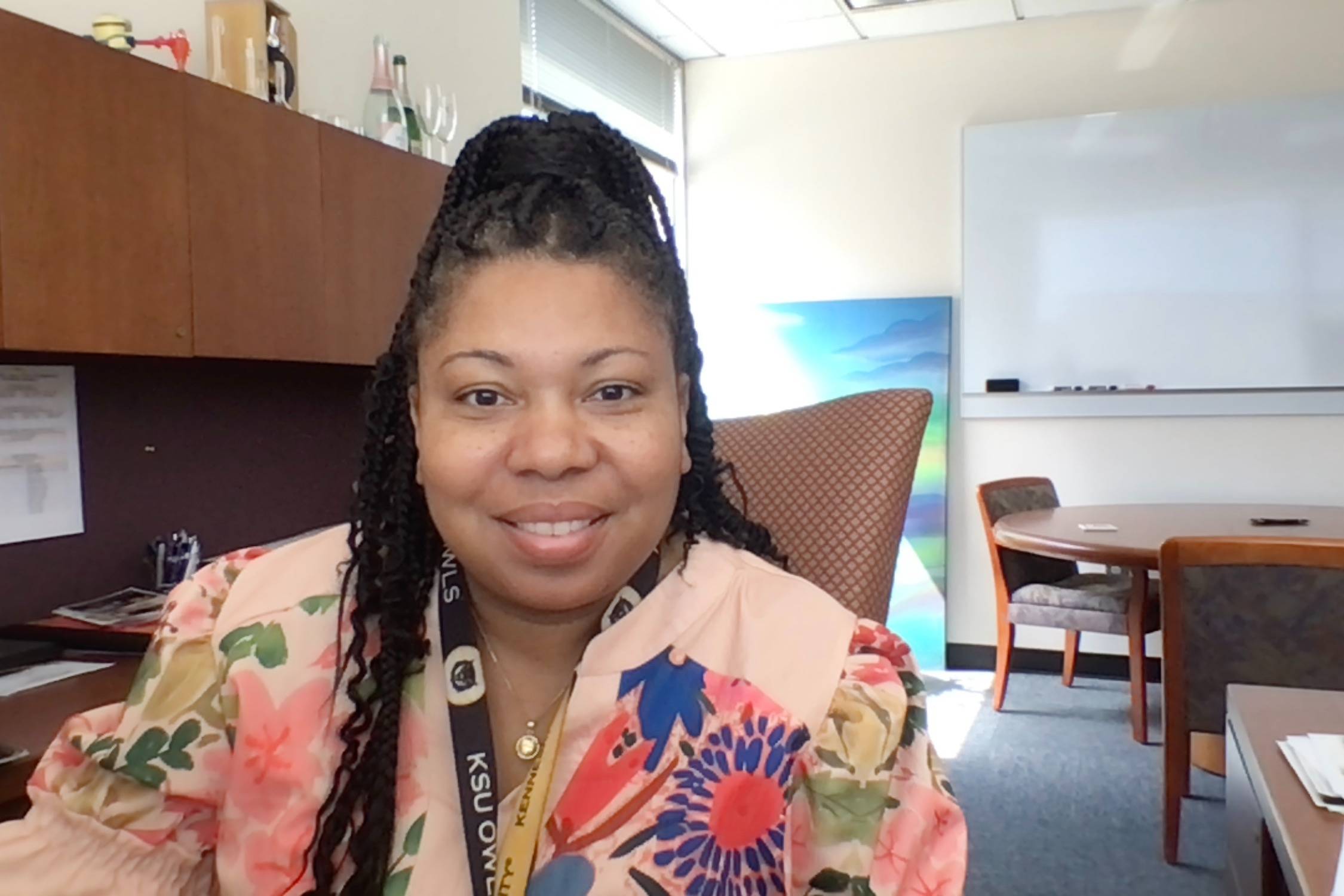Melanie Griffin
Interim Department Chair, Associate Professor of Biology, Director of Special Programs, MPI/PD: NSF LSAMP, NIH Bridges to Doctorate program and NIH U-RISE at Kennesaw State program
Department of Molecular and Cellular Biology
College of Science and Mathematics
What Microbiologists Do?
(Source: ASM) Microbiologists work in almost every industry - from food, agriculture and pollution control to biotechnology, pharmaceuticals and health. They also work in government agencies and labs, such as the National Institutes of Health, the Environmental Protection Agency, water treatment facilities, and hospitals. They also work in education as teachers and researchers. Because there are so many different species of microbes out there and they do such very different things, no one microbiologist can study everything! That's why people who become microbiologists usually focus on a particular microbe or research area. Here are a few examples: Some microbiologists focus on bacteria and how they help or hurt us. These scientists are called bacteriologists. Some specialize in viruses and how they infect cells. These scientists are called virologists. Some study fungi in particular and are called mycologists. Some microbiologists track down outbreaks of disease to learn what caused them and if we're facing a deadly new microbe. They are called epidemiologists. Some study how the body defends itself against microbial invaders. They are called immunologists. This is only a partial listing of the many different things microbiologists do. If you really want to get a good sense of what microbiologists do, you should talk to some of them. You might start with the microbiology researchers here at KSU - Drs. Ramya Rajagopalan, Jean Lu, Micheal Beach, Chris Cornelison, Premila Achar, Andrew Haddow, Yoshi Masafumi or myself.
Courses
- 2260/2260L Fundamental Microbiology/Fundamental Microbiology Lab
- 4460K Medical Microbiology with Lab
- 3301K Intro to Biotechnology
- 3340/3340L General Microbiology/ Microbiology Lab
- 4635 Advanced Topics in Microbiology: Deadly Microbes
- 7446 Molecular Mechanisms of Pathogenesis (Graduate course)
Research Interest
Bacterial pathogenesis
The opportunistic human pathogen Pseudomonas aeruginosa has one of the largest and most metabolically diverse genomes among bacteria. The Griffin lab uses molecular biology approaches from PCR to transcriptomics to investigate differential regulation by an under-reported epigenetic regulator of a large group of metabolic pathways and virulence factors.
Pathogen-Specific Phages
As bacterial pathogens, especially the ESKAPE pathogens (Enterococcus faecium, Staphylococcus aureus, Klebsiella pneumoniae, Acinetobacter baumannii, Pseudomonas aeruginosa, and Enterobacter spp.), continually develop resistance to clinical applications of standard antibiotics, rapid identification of nonchemical-antibiotic therapies are attractive for future treatment of these organisms. Bacteriophages, viruses that target bacteria, have potential uses in alternative antibiotic therapies because of their abundance in nature and their high specificity of infection. Identifying common sources of phages within the environment, especially those that can infect the ESKAPE pathogens, could reveal untapped reservoirs of phages that are easily isolated and accessible for uses in clinical settings.
Current Research Students
Undergraduates
Josefa Wulf, Lexie Williams, Francisco Armstrong
MSIB graduate student
Alexis Williams
Future Directed Study Opportunities
Griffin lab will be looking for new students for Fall 2025.










